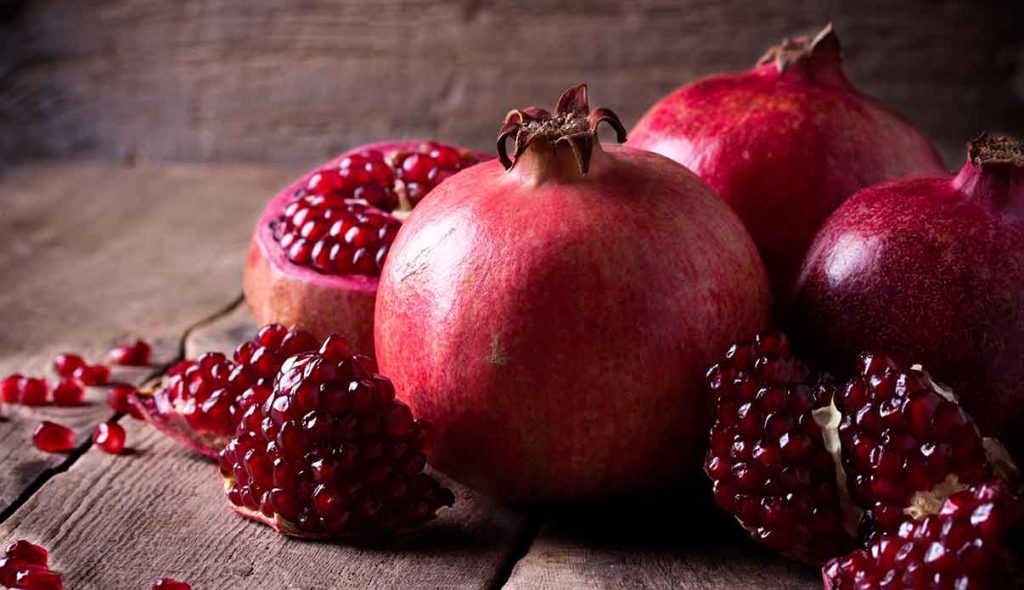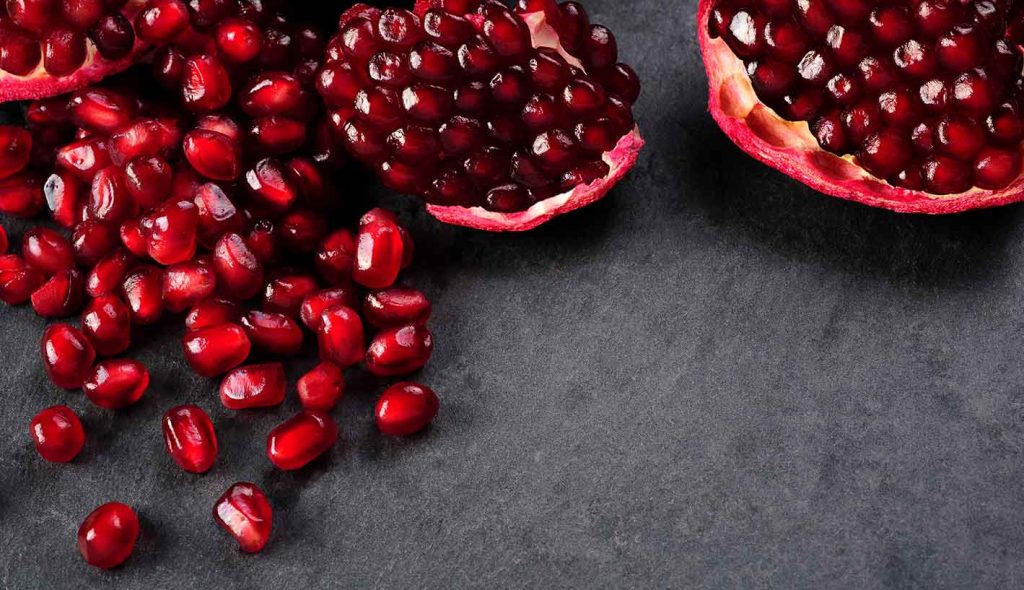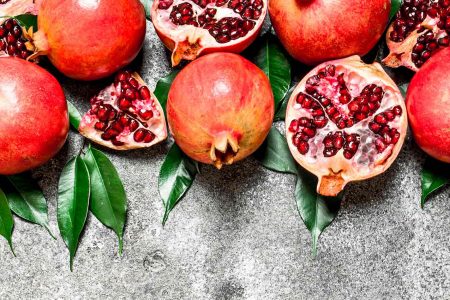Rich in Vitamin C, potassium, fiber, and brimming with antioxidants, pomegranates are a powerful line of defense to combat arthritis, inflammation, cancer, and even Alzheimer’s disease.
Gorgeous ruby seeds add a burst of flavor to salads and entrées, and they satisfy the senses while strengthening your immune system. A win-win all around!
From the Latin pōmum (apple) and grānātum (seeded), the fruit grows on small trees that can survive in dry soil. Cultivated for thousands of years from the Middle East to Northern India and from the Mediterranean to Africa, pomegranates have been a staple since the early Bronze Age. Today, pomegranates continue to be incorporated into these cuisines as both a garnish and core ingredient.

Beyond its culinary possibilities, the pomegranate bursts with as many symbols as it does seeds. In ancient Hebrew, the fruit signifies abundance: It is said that a pomegranate contains 613 seeds, an exact parallel to the number of commandments found in the Torah (Judaic scriptures).
In ancient Greek, pomegranates represent something enticing yet dangerous. The young goddess, Persephone, was tricked by Hades, god of the Underworld, after he kidnapped her and tried to make her his wife. Zeus ordered Hades to return Persephone to the land of the living. He agreed, but before taking her back, persuaded Persephone to accept a gift, a bowl of pomegranate seeds. Some stories say she was hungry while others suggest she was merely polite. Nevertheless, after eating six seeds she discovered, too late, that she’d swallowed the food of the dead and would have to return six months each year to serve as Hades’s queen.
In yet another fascinating version of Eden’s origin story (from the Abrahamic religions), it was a pomegranate, not an apple, that tempted Eve. Since pomegranates grow easily in the Middle East, where Eden was supposed to dwell, it makes sense that the pomme or apple was a pomegranate.

Mind you, this has nothing to do with your dinner or with any recipes that feature pomegranates. However, there is an old story, still in circulation, that says within every pomegranate there is one seed from Eden’s tree. The good news? This ancient fruit is no longer forbidden! And as you bite into a seed, think about how your ancestors prized this fruit for its beauty as well as its flavor.
Even if a recipe doesn’t call for pomegranate seeds, feel free to add them to your salads or entrées, enjoy their tangy deliciousness, and enhance your dish with a pleasing ruby-seeded hue!
Pomegranates were a staple of the ancient world. Today you will find pomegranates, pomegranate juice, and seeds in supermarkets, natural food stores, and, of course, on the Internet. Enjoy!
Head over to this link to make sure you are not missing out on this delicious pomegranate salad recipe!
-Kathryn Kruger for the Veggie Fest Team







